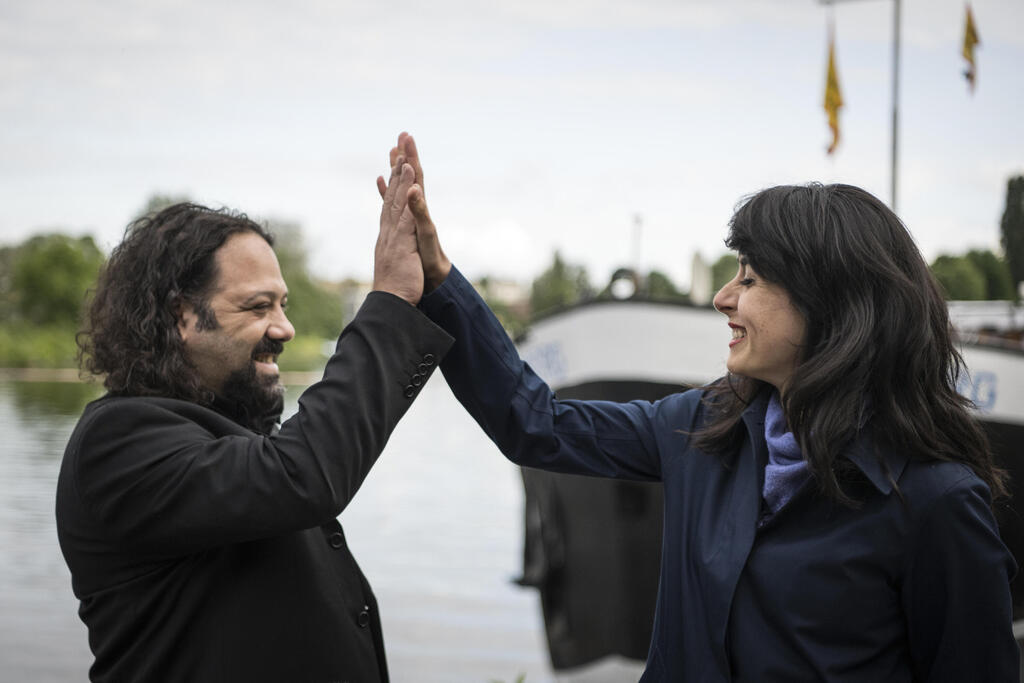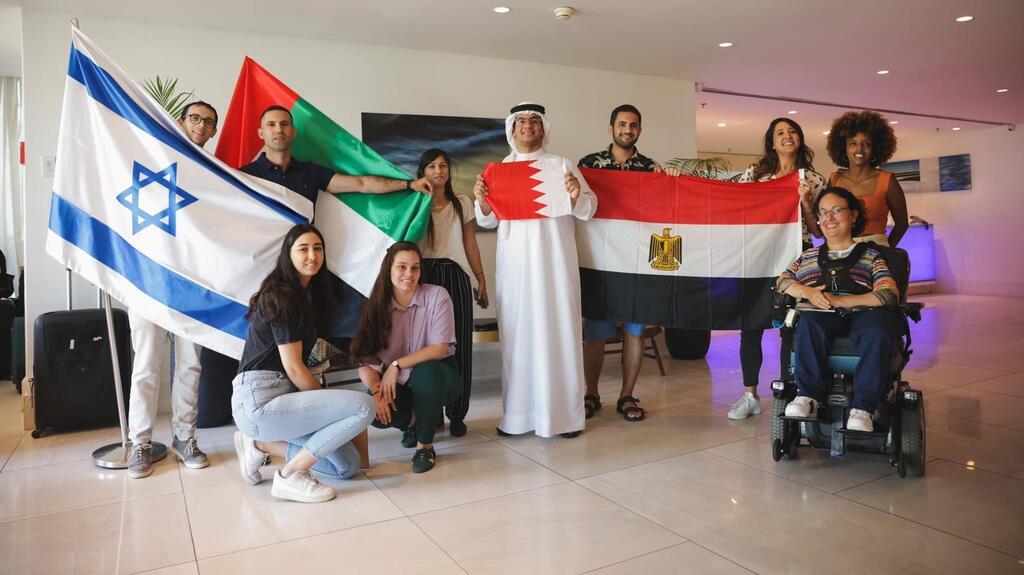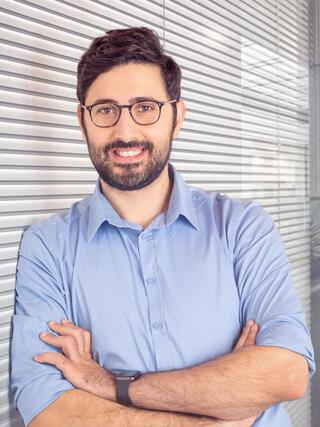Regrettably, it is necessary to underscore in every discussion of this nature: The events of October 7 brought immense suffering to the Arab community as well. Arab citizens were not only victims of mass murder and abduction, but some were targeted even while aiding other victims.
Read more:
Amid the escalating security tensions that have subsequently spread, it's crucial to note that threats from across the borders do not discriminate between Metula and Arab al-Aramsha, Kfar Saba and Kfar Kassem, or Rahat and Sderot. The personal security of the Arab population, which has already been weakened over recent years due to the failure of governments, neglect, and a persistent institutional inability to tackle violence and crime in the Arab sector4, is now further eroding.
2 View gallery


assim Mukdad, right, and Eden Cami of Arab-Israeli-Jewish band Kayan Project
(Photo: AP)
A recent survey from the The Viterbi Family Center for Public Opinion and Policy Research suggests that the sentiment of unity and affiliation with Israeli society has paradoxically grown stronger in the midst of war. Indeed, 70% of Arab citizens now express a sense of belonging to the State of Israel and a shared concern for its challenges, a significant increase from 48% just last June. This level of identification is unprecedented in the Arab community in the past two decades, marking the highest since the institute began its surveys.
Parallel sentiments are resonating among the leadership in response to the inhumane attack by Hamas on October 7. Arab members of the Knesset and heads of Arab local authorities have vocally condemned the horrific event. Mansour Abbas, the chairman of Ra'am, has publicly denounced the attack as a violation of Islamic principles, which encourage peace and dialogue over violence and terror. Abbas highlighted a crucial yet often overlooked point: that the Arab community in Israel plays a significant role, particularly in these trying times, in fostering understanding, promoting reconciliation, and championing peace.
2 View gallery


Young influencers from the Arab world meet with Israeli counterparts in a visit organized by the Israel-Is organization
(Photo: Itamar Eyal)
That being said, even as the Arab public refrains from reacting to seemingly innocent provocations hinting at a potential repeat of the 2021 sectarian hostilities, their relationship with their Jewish counterparts becomes increasingly sensitive. Mistrust towards Arab citizens is on the rise, leading to a situation where those fearful of potential backlash tend to downplay their identity in public spaces, sometimes even avoiding the use of Arabic language. Expressions of empathy or concern for the civilian population in Gaza are also met with apprehension.
According to the Israel Police, over 190 Arab citizens—including professionals such as doctors, politicians, teachers, and others—have been detained for questioning since the outbreak of the war. This is primarily due to their social media posts or attempts to protest, which have been labeled as incitement efforts. Yet, most of these actions are simply expressions of sorrow over the suffering or critiques against the harm inflicted upon innocents. Against this backdrop, a pressing question emerges: why has the voice of Israeli democracy seemingly gone mute during the war?
 Dr. Adam Asad
Dr. Adam AsadArab society is currently grappling with challenges on three fronts: the external threat of missile attacks from both north and south; the pervasive violence and crime within their communities; and the intensifying suppressive policies enacted against them. These factors could potentially deepen the divide between Arabs and Jews following the war, impairing the capability of both communities to establish a harmonious coexistence.
The fostering of reconciliation between Jews and Arabs in Israel is not only a moral imperative, but also a prerequisite for maintaining peace and stability within this nation. Without such reconciliation and mutual understanding, the wounds inflicted by conflict will continue to fester, perpetuating societal divisions. In this endeavor, all citizens of the State of Israel, whether Jewish or Arab, bear the responsibility to actively contribute to the promotion of reconciliation.
Dr. Adam Asad is the Head of the Arab Society Program, the Center for Values and Democratic Institutions at IDI

